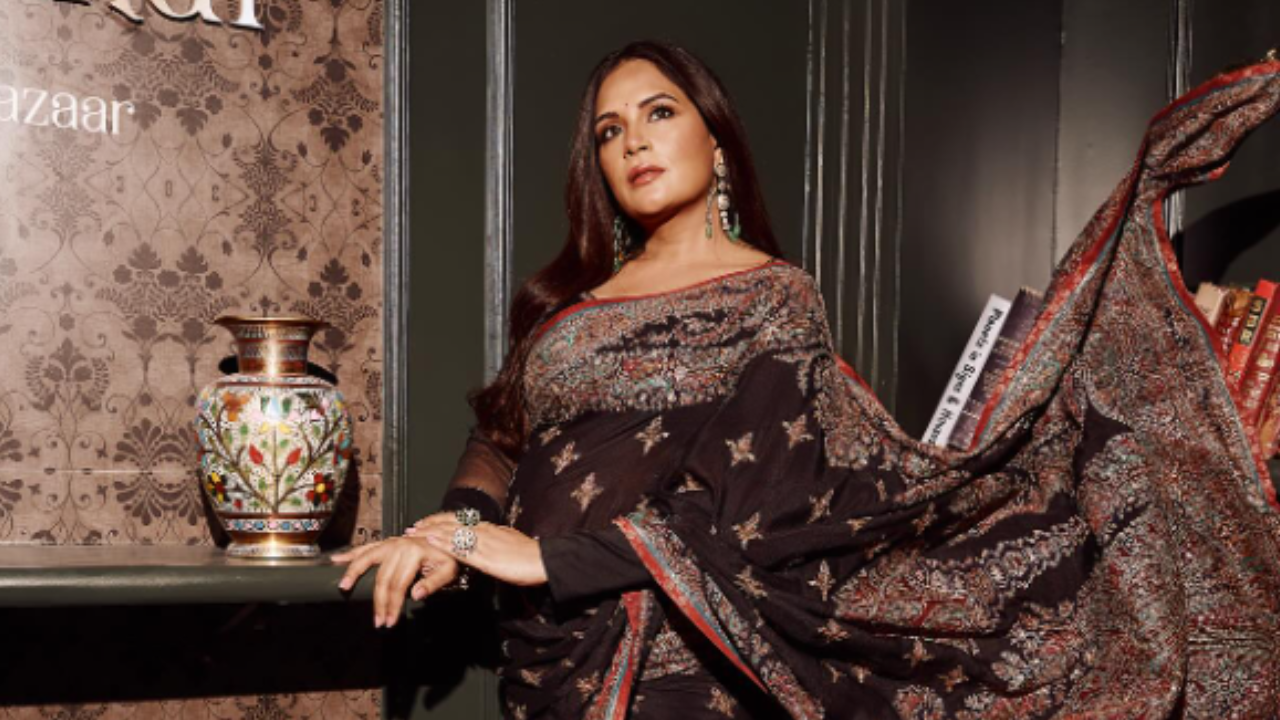Richa Chadha‘s portrayal of Lajjo in Sanjay Leela Bhansali‘s ‘Heeramandi: The Diamond Baazar’ has been lauded for its depth and authenticity. In a recent interview, she addressed Nora Fatehi‘s statement regarding women being nurturers, expressing her disagreement with the notion of prescribing specific roles for women.
The actress known for her outspoken views, emphasized the importance of feminism in granting women the freedom to make choices and pursue their aspirations.In an interview with Puja Talwar, she highlighted how feminism has enabled women to have careers, make independent choices, and contribute to society beyond traditional gender roles.
Richa debunked the misconception surrounding feminism, stating that it is often misunderstood as a radical movement stemming from the imagery of the late ’60s. Instead, she emphasized that feminism is about equality and empowerment, enabling women to define their own paths.Further, Richa Chadha contested the notion of predetermined gender roles, drawing parallels to the shared responsibilities observed in nature. Using the example of lion families, where both parents actively participate in raising their offspring, she underscored the belief that caregiving responsibilities should not be exclusively assigned to women.
For the unversed, it all started with Nora Fatehi’s comments on feminism sparked controversy, with her remarks challenging conventional notions of gender roles. She expressed skepticism towards feminism, suggesting that it has had detrimental effects on society. Nora advocated for a return to traditional gender roles, with men as providers and protectors, and women as nurturers.
Richa Chadha’s response reflects a broader discourse on feminism and gender equality in society. Her critique of Fatehi’s stance underscores the ongoing dialogue surrounding women’s rights and empowerment.
The actress known for her outspoken views, emphasized the importance of feminism in granting women the freedom to make choices and pursue their aspirations.In an interview with Puja Talwar, she highlighted how feminism has enabled women to have careers, make independent choices, and contribute to society beyond traditional gender roles.
Richa debunked the misconception surrounding feminism, stating that it is often misunderstood as a radical movement stemming from the imagery of the late ’60s. Instead, she emphasized that feminism is about equality and empowerment, enabling women to define their own paths.Further, Richa Chadha contested the notion of predetermined gender roles, drawing parallels to the shared responsibilities observed in nature. Using the example of lion families, where both parents actively participate in raising their offspring, she underscored the belief that caregiving responsibilities should not be exclusively assigned to women.
For the unversed, it all started with Nora Fatehi’s comments on feminism sparked controversy, with her remarks challenging conventional notions of gender roles. She expressed skepticism towards feminism, suggesting that it has had detrimental effects on society. Nora advocated for a return to traditional gender roles, with men as providers and protectors, and women as nurturers.
Richa Chadha’s response reflects a broader discourse on feminism and gender equality in society. Her critique of Fatehi’s stance underscores the ongoing dialogue surrounding women’s rights and empowerment.
‘Heeramandi: The Diamond Bazaar,’ immersed in the ambiance of a bygone era, delves into intricate themes of love, power dynamics, and societal conventions. Richa Chadha’s depiction of Lajjo, a character navigating the complexities of longing for love and acceptance, enriches the storyline, garnering widespread acclaim from critics and viewers alike.
#Richa #Chadha #Disagrees #Nora #Fatehis #Women #Nurturers #Comment
